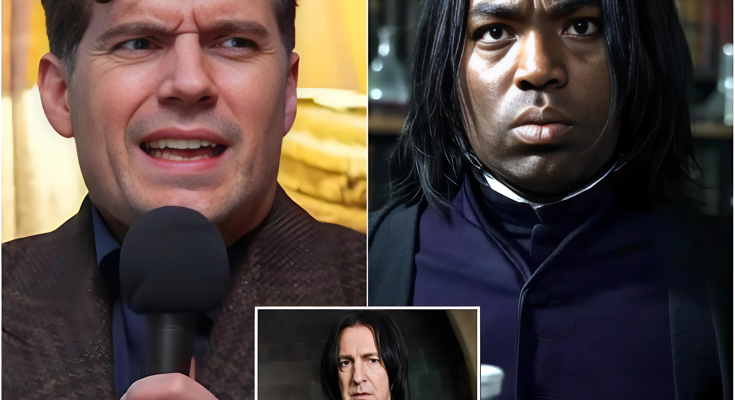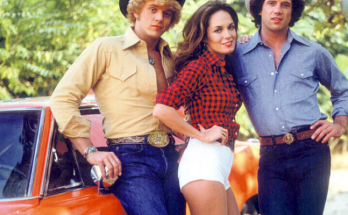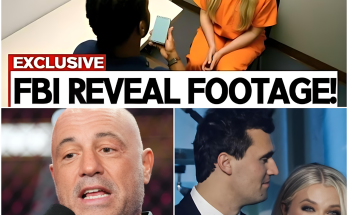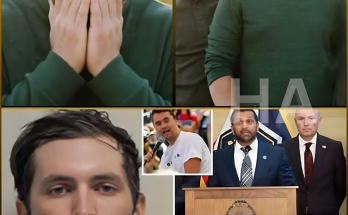The announcement of HBO’s upcoming Harry Potter television series has sparked widespread discussion, but recent comments attributed to actor Henry Cavill have ignited a firestorm of controversy. Cavill, known for his roles in The Witcher and Man of Steel, has reportedly expressed strong disapproval of the casting choices for the highly anticipated series, particularly the decision to cast Black actor Paapa Essiedu as Severus Snape. Additionally, Cavill is said to have criticized director Mark Mylod, a veteran of Succession and Game of Thrones, for his creative direction. While Cavill’s remarks have not been officially verified, they have fueled debates about representation, artistic liberty, and fidelity to J.K. Rowling’s original novels.

The HBO series, set to adapt Rowling’s seven-book saga over a decade, has already faced scrutiny since its casting announcements. The ensemble includes notable actors like John Lithgow as Albus Dumbledore, Janet McTeer as Minerva McGonagall, and Nick Frost as Rubeus Hagrid. However, the casting of Essiedu as Snape—a character described in the books as having “sallow skin” and a gaunt appearance—has drawn significant attention. Some fans argue that the choice deviates from the source material, while others celebrate the opportunity for diverse representation in the wizarding world. Cavill, according to unconfirmed reports circulating on social media, has sided with the former, allegedly stating that the casting undermines the “authenticity” of Rowling’s vision.

Cavill’s purported criticism extends beyond Essiedu’s casting to the broader creative decisions under Mylod’s leadership. Sources claim Cavill questioned Mylod’s ability to balance the series’ tone, given his background in darker, satirical projects like The Menu and Succession. Mylod, who will direct multiple episodes and serve as an executive producer alongside showrunner Francesca Gardiner, has been praised for his nuanced storytelling in prestige television. However, Cavill reportedly suggested that Mylod’s approach risks alienating fans by prioritizing modern sensibilities over the books’ established aesthetic. These remarks, if true, place Cavill at odds with HBO’s vision for a fresh yet faithful adaptation.

The backlash to Cavill’s alleged comments has been swift. Supporters of Essiedu, an acclaimed actor known for I May Destroy You, argue that his talent transcends physical descriptions in the books. They point to the success of colorblind casting in other adaptations, such as the Bridgerton series, as evidence that diversity can enhance storytelling without compromising quality. Critics of Cavill’s stance have also highlighted the evolving nature of the Harry Potter franchise, noting that the original films featured predominantly white casts despite the books’ minimal emphasis on race for most characters. On platforms like X, fans have rallied behind Essiedu, with many calling Cavill’s reported remarks “disappointing” and out of touch.
Conversely, some fans align with Cavill’s perspective, emphasizing the importance of staying true to Rowling’s descriptions. Online discussions have resurfaced debates about “book accuracy,” with certain Potterheads arguing that Snape’s pale, brooding demeanor is integral to his character. These fans express concern that significant departures from the source material could dilute the series’ connection to its literary roots. The controversy has also reignited discussions about Rowling’s involvement as an executive producer, given her polarizing views on gender and her influence over the series’ creative direction.

Mylod and HBO have yet to respond directly to Cavill’s alleged criticisms. However, industry insiders suggest that the director remains focused on delivering a series that honors the books while appealing to a global audience. The casting process, which has seen over 32,000 auditions for the roles of Harry, Ron, and Hermione, reflects HBO’s commitment to a meticulous approach. With filming set to begin in summer 2025 and a tentative release in late 2026 or early 2027, the series is poised to be a cultural juggernaut, regardless of the current uproar.
Cavill’s reported comments, whether fully accurate or exaggerated, underscore the challenges of rebooting a beloved franchise in an era of heightened cultural sensitivity. The Harry Potter series has long been a lightning rod for debates about representation, authorship, and adaptation. As HBO navigates these turbulent waters, the controversy surrounding Cavill’s remarks serves as a reminder of the passionate fandom that continues to shape the wizarding world’s legacy. Whether Essiedu’s Snape will silence critics or fuel further debate remains to be seen, but one thing is clear: the magic of Hogwarts is as divisive as ever.



